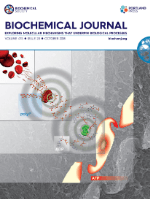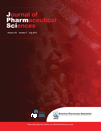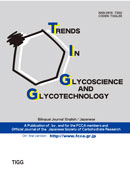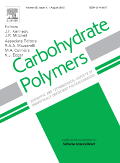
Carbohydrate Research
metrics 2024
Fostering collaboration in carbohydrate chemistry.
Introduction
Carbohydrate Research, published by Elsevier Science Ltd, stands as a pivotal platform for advancing the understanding of carbohydrate chemistry and its applications, with fine coverage extending from 1965 to 2024. This esteemed journal, with an ISSN of 0008-6215 and E-ISSN 1873-426X, is positioned in the Q2 category for Analytical Chemistry and Organic Chemistry, and Q3 for both Biochemistry and Medicine (miscellaneous) as of 2023, reflecting its substantial impact within these disciplines. With a Scopus rank placing it in the 58th and 57th percentiles for Analytical and Organic Chemistry respectively, Carbohydrate Research attracts a diverse readership including researchers, professionals, and students keen on exploring the latest developments in carbohydrate science. Though it operates under a traditional publishing model, the journal fosters a rich environment for scholarly communication and innovation in carbohydrate-related research, making it an invaluable resource for those committed to unraveling the complexities of this essential biomolecule.
Metrics 2024
 0.51
0.51 2.40
2.40 2.50
2.50 149
149Metrics History
Rank 2024
Scopus
IF (Web Of Science)
JCI (Web Of Science)
Quartile History
Similar Journals

Separation Science Plus
Advancing analytical horizons in separation science.Separation Science Plus is an emerging academic journal dedicated to advancing the field of analytical chemistry and separation science. Published by WILEY-VCH Verlag GmbH, this journal provides a platform for researchers to disseminate high-quality studies and reviews that address innovative techniques and breakthroughs in separation methodologies. With its ISSN 2573-1815, the journal has made significant inroads since its inception in 2018, encompassing a convergence period until 2024. Despite currently holding a Q3 ranking in Analytical Chemistry and a Q4 ranking in Filtration and Separation, its dedication to publishing impactful research makes it a vital resource for professionals and students alike. The journal operates under the robust scholarly reputation of WILEY, which is known for its commitment to excellence in scientific communication. Researchers interested in the latest advancements in separation techniques will find Separation Science Plus an essential read, fostering the exchange of knowledge and facilitating greater understanding within this specialized field.

MICROCHEMICAL JOURNAL
Fostering Knowledge in Analytical and Spectroscopic AdvancesMicrochemical Journal, published by Elsevier, stands as a leading scholarly publication in the fields of Analytical Chemistry and Spectroscopy, boasting impressive rankings of Q1 and Q2 in their respective categories for 2023. With an H-index reflecting its substantial impact and relevance, this journal has been a cornerstone of research dissemination since its inception in 1957, and it continues to play a vital role in advancing the methodological and technological innovations within these disciplines. The journal presents peer-reviewed articles that explore a wide array of topics, making it an essential resource for researchers, professionals, and students keen on the latest advancements in microchemical processes and techniques. Although it does not currently offer open access options, its publication through Elsevier ensures a high standard of academic integrity and wide accessibility through various academic institutions. With a strong Scopus ranking—9th in Chemistry Spectroscopy and 22nd in Analytical Chemistry—Microchemical Journal is an indispensable platform for empirical studies, insightful reviews, and pioneering methodologies in the microchemical domain.

ANALYTICAL AND BIOANALYTICAL CHEMISTRY
Illuminating the Path of Chemical InnovationANALYTICAL AND BIOANALYTICAL CHEMISTRY, published by SPRINGER HEIDELBERG, is a leading international journal that serves as a vital platform for innovative research in the fields of analytical and bioanalytical chemistry. With an impressive impact factor and ranking in the Q2 category for both Analytical Chemistry and Biochemistry, the journal highlights key advancements and methodologies that drive the discipline forward. Established in 1996 and continuing vigorously into 2024, it has gained significant recognition with Scopus rankings placing it in the 83rd and 78th percentiles within its categories, underscoring its impact and relevance. The journal's commitment to open access facilitates widespread dissemination of critical scientific knowledge, making it an essential resource for researchers, professionals, and students dedicated to exploring the complexities of chemical analysis. With its base in Heidelberg, Germany, ANALYTICAL AND BIOANALYTICAL CHEMISTRY continues to inspire and influence the global research community.

BIOCHEMICAL JOURNAL
Driving Scientific Excellence in BiochemistryBIOCHEMICAL JOURNAL, published by Portland Press Ltd, stands as a leading publication in the fields of Biochemistry, Cell Biology, and Molecular Biology, reflecting a commitment to advancing scientific knowledge since its inception in 1945. With a distinguished Q1 ranking across these categories and impressive Scopus rankings, the journal serves as an invaluable resource for researchers, professionals, and students alike, facilitating critical discoveries and innovative research practices. Although not currently offering open access, the journal provides a platform for high-quality peer-reviewed articles, ensuring rigorous standards in the dissemination of biochemical research. Spanning over seven decades and continuing through to 2024, the BIOCHEMICAL JOURNAL fosters an environment where cutting-edge biochemical research thrives, supporting the global scientific community's efforts to address complex biological questions and enhance our understanding of fundamental cellular processes.

JOURNAL OF PHARMACEUTICAL SCIENCES
Elevating research standards in the realm of pharmaceutics.The JOURNAL OF PHARMACEUTICAL SCIENCES, published by ELSEVIER SCIENCE INC, stands as a cornerstone in the field of pharmaceutical sciences, offering a platform for innovative research and advancements since its inception in 1961. With an impressive Scopus Rank of #36 out of 183 in the Pharmaceutical Science category, this journal is recognized for its commitment to disseminating high-quality, peer-reviewed studies that significantly contribute to the realms of pharmacology, toxicology, and pharmaceutics. Holding a 2023 Q2 category quartile, it attracts a diverse readership encompassing researchers, industry professionals, and students eager to advance their understanding and expertise. While the journal is not open access, it ensures valuable insights in every issue, making it an essential resource for those dedicated to the evolving landscape of pharmaceutical research. With an impact factor that reflects its relevance and influence, the JOURNAL OF PHARMACEUTICAL SCIENCES continues to shape the discourse in its domain, fostering innovation and collaboration among scholars worldwide.

TRENDS IN GLYCOSCIENCE AND GLYCOTECHNOLOGY
Exploring the Frontiers of Glycoscience and GlycotechnologyTRENDS IN GLYCOSCIENCE AND GLYCOTECHNOLOGY, a reputable journal published by GAKUSHIN PUBL CO, serves as an essential resource for researchers and professionals engaged in the evolving fields of glycoscience and glyotechnology. Established in 1989, this journal has progressively focused on stimulating discussions and disseminating pivotal findings that impact various applications in biochemistry and organic chemistry. With an impressive converge covering decades up to 2024, the journal has carved a niche within the scientific community, despite currently being classified in the lower quartiles (Q4) for its respective categories in 2023. This designation underscores the potential for growth and enhanced visibility within research networks. While it currently operates under a subscription-based model, TRENDS IN GLYCOSCIENCE AND GLYCOTECHNOLOGY remains committed to fostering innovation and interdisciplinary collaboration, providing a critical platform for the exploration of glycan structures and functions. Located in Tokyo, Japan, the journal invites contributions that contribute to the future direction of glycoscientific research and its applications.

Bulletin of the University of Karaganda-Chemistry
Empowering Scholars with Open Access Chemistry InsightsBulletin of the University of Karaganda-Chemistry is an esteemed academic journal published by KARAGANDA STATE UNIVERSITY, focusing on the field of chemistry and related disciplines. With an ISSN of 2518-718X and an E-ISSN of 2663-4872, this journal aims to disseminate high-quality research articles, reviews, and scholarly discussions that contribute to the advancement of knowledge in chemistry. Although it has experienced a transition in its coverage from 2021 to 2022, the journal remains a significant platform for researchers and students alike, promoting open access to its valuable content. Despite its current Scopus rank of #379/407 in the general chemistry category, the Bulletin of the University of Karaganda-Chemistry serves as a vital resource for the academic community in Kazakhstan and beyond, fostering collaboration and innovation in various chemical research domains. Researchers, professionals, and students are encouraged to engage with the journal as it continues to evolve and contribute to significant scientific discussions.

Analytical Science and Technology
Elevating the standards of analytical chemistry and technology.Analytical Science and Technology is a prominent journal dedicated to advancing the fields of analytical chemistry and technology, published by the Korean Society for Analytical Science. Based in South Korea, this journal serves as a vital platform for researchers, professionals, and students committed to exploring innovative analytical techniques and methodologies. Although it is classified under Q4 in various subject categories, including Agronomy and Crop Science, Environmental Chemistry, and Pharmacology, the journal aims to provide critical insights and contributions to the scientific community. With ISSN 1225-0163 and E-ISSN 2288-8985, it spans a converged timeline from 2019 to 2024. Despite its current standings in Scopus rankings, the journal is dedicated to improving its visibility and impact through rigorous peer review and high-quality publications, fostering knowledge sharing within its diverse academic fields. Researchers looking for a reliable outlet for their findings are encouraged to consider this journal as it continues to strive for excellence in analytical science.

Carbohydrate Polymers
Innovating materials through carbohydrate science.Carbohydrate Polymers is a prestigious academic journal, published by ELSEVIER SCI LTD, that plays a vital role in the field of materials chemistry, organic chemistry, and polymer science. With its Q1 category rankings in these domains, this journal serves as a critical platform for disseminating high-quality research, innovative methodologies, and significant advancements in carbohydrate-based polymers. Since its inception in 1981 and continuing until 2025, it has fostered critical discussions and collaborations among researchers, professionals, and students worldwide. Although it does not offer open access, its rigorous peer-review process ensures that only the most impactful studies are published. By highlighting new developments in the synthesis, characterization, and application of carbohydrate polymers, Carbohydrate Polymers consistently contributes to the enhancement of knowledge and technology within its field, making it an essential resource for anyone working at the intersection of chemistry and materials science.

Carbohydrate Polymer Technologies and Applications
Leading the Charge in Carbohydrate Polymer AdvancementsCarbohydrate Polymer Technologies and Applications, published by ELSEVIER, is an esteemed open access journal that has been fostering innovation in the field of carbohydrate polymer research since its inception in 2020. With its ISSN 2666-8939, this journal is dedicated to exploring the intersections of analytical chemistry, biochemistry, biotechnology, and materials science, making significant contributions to our understanding of carbohydrate polymers and their diverse applications across various industries. Notably, it has attained a prominent position in various categories, reflecting its quality and impact: ranked Q1 in Analytical Chemistry, Biotechnology, and several Materials Science disciplines, while maintaining strong positions in the Q2 and other quartiles. Additionally, with impressive Scopus rankings—14th in Chemistry (miscellaneous) and 23rd in Analytical Chemistry—it stands at the forefront of scholarly dialogue in these areas, appealing to researchers, professionals, and students alike. The journal's commitment to open access facilitates wider dissemination of knowledge and enhances collaborative research, solidifying its role as a pivotal resource for advancing carbohydrate polymer technologies.